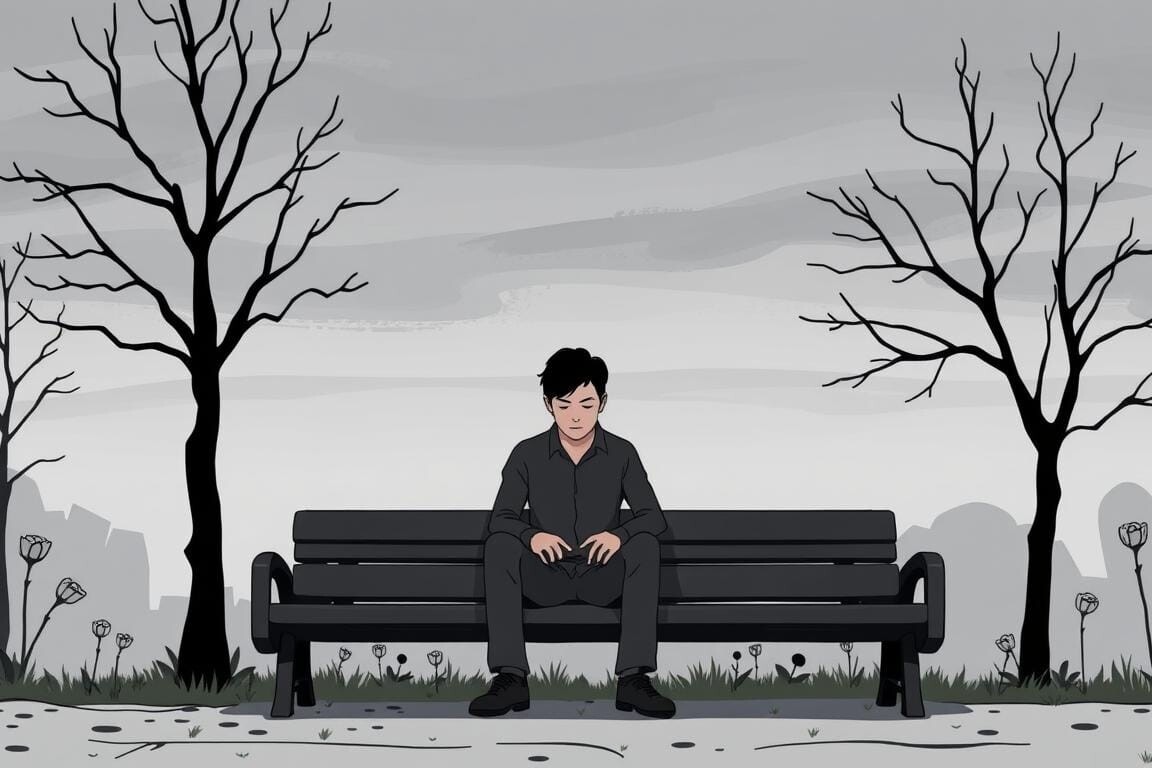Dr. Chandril Chugh is a top expert in mental health. He has spent his career studying women’s challenges, like postpartum depression. We’ll look into if genes play a role in postpartum depression and discuss mental health issues in women.
Postpartum depression affects over one in ten women in the first year after giving birth. It can harm the bond between mother and child. Research shows genes might play a part in some women getting postpartum depression. Knowing this helps us support new moms better.
This article also talks about women’s mental health beyond postpartum depression. We’ll look at why women face more anxiety and depression. We’ll also talk about how violence and abuse affect women’s mental health. Our goal is to help you understand and support women’s mental health.
Table of Contents
ToggleThe Prevalence of Mental Health Issues among Women
Women often face unique mental health challenges. They are twice as likely to have anxiety compared to men. Also, one in five women has a mental disorder, while one in eight men do.
Young women aged 16-24 are especially affected. Over a quarter (26%) of them report a common mental health problem.
These trends show we need more awareness and support for women’s mental health. It’s important to understand the challenges women face, like societal pressures and barriers to care.
Anxiety and Depression Rates
Anxiety and depression are big issues for women. Women are more likely to experience these conditions. Anxiety is twice as common in women as in men.
Depression also affects women more, with one in five women reporting a mental disorder. This is compared to one in eight men.
Common Mental Disorders in Young Women
Young women face big mental health challenges. Over a quarter (26%) of women aged 16-24 report a common mental health problem. This includes anxiety, depression, or PTSD.
This age group is especially vulnerable. They deal with stress, societal expectations, and gender-based barriers as they grow up.
It’s key to address the mental health needs of women, especially young women. This helps ensure everyone has the support and resources to thrive.
The Impact of Violence and Abuse on Women’s Mental Health
Women’s well-being is closely tied to their experiences of violence and abuse. Over half (53%) of women with mental health issues have faced abuse. Almost three-quarters (78%) of women who faced severe violence have experienced life-threatening trauma.
Tragically, trauma’s effects can be severe. About 16% of these women have PTSD. Over a third (36%) have tried to kill themselves, and a fifth (22%) have harmed themselves. This shows we must help survivors and support them fully.
Abuse and Mental Health Problems
There’s a clear link between abuse and mental health in women. Research shows that women who have been abused are more likely to have anxiety, depression, and other issues. It’s crucial to create safe spaces for women to heal from abuse.
Trauma, PTSD, and Self-Harm
Traumatic experiences deeply affect a woman’s mental health. Many survivors deal with PTSD, leading to flashbacks and emotional struggles. Sadly, some turn to self-harm, risking their health further.

Helping women who have been abused is essential. We need to offer trauma-informed care, counseling, and support. This way, we can help survivors heal and build a better future.
Mental Health and Poverty: The Connection for Women
Poverty greatly affects women’s mental health. Research shows 29% of poor women have mental health issues. This is compared to 16% of women who are not poor. Women in poverty who have been abused face even worse mental health.
It’s key to tackle the link between women’s mental health and poverty. We need to use proven strategies to help women. This way, they can overcome their challenges and feel better mentally. They can then live better lives, have healthy relationships, and join their communities more fully.
- Women are nearly twice as likely as men to be diagnosed with depression.
- Postpartum depression occurs in about 10 to 15 percent of women.
- The association between pubertal status and depressive symptoms and diagnosis in adolescent females shows higher depression rates in females.
- Women are much more likely than men to live in poverty, which can cause feelings of negativity, low self-esteem, and lack of control over life.
- Women who were emotionally, physically, or sexually abused are more likely to experience depression at some point in their lives than those who weren’t abused.
By tackling the link between women’s mental health and poverty, we empower them. It’s vital to use proven strategies to support women. This way, they can live healthier, more fulfilling lives.
Statistics on Women’s Mental Health: Disparities Among Minority Groups
Women from different backgrounds face unique mental health challenges. Some groups face even bigger barriers. Research shows big gaps in mental health issues among minority women in the U.S.
Studies found that 29% of Black women, 24% of Asian women, and 29% of mixed-race women have common mental disorders. This is compared to 21% of White British women and 16% of White other women. These gaps are due to racism, discrimination, money status, and cultural beliefs. These make it hard for minority women to get the mental health help they need.
Mental Health Challenges for Minority Women
Minority women, like those from Black, Asian, and other ethnic groups, face extra hurdles. Racial disparities, socioeconomic factors, and cultural barriers make their mental health problems worse.
- Black women have a 29% prevalence of common mental disorders, compared to 21% of White British women.
- Asian women have a 24% prevalence of common mental disorders, compared to 16% of White other women.
- Mixed-race women have a 29% prevalence of common mental disorders.
It’s key to tackle these gaps and offer culturally-responsive, community-focused care. This is vital for the mental health of all women’s mental health.

Reproductive and Maternal Mental Health Concerns
Women face unique mental health challenges throughout their reproductive lives. From premenstrual disorders to postpartum depression, addressing these concerns is crucial for supporting women’s overall well-being.
Premenstrual Dysphoric Disorder (PMDD)
Premenstrual Dysphoric Disorder (PMDD) affects about one in 20 women. It causes mood swings, irritability, anxiety, and depression during the luteal phase. A multifaceted approach, including lifestyle changes, therapy, and medication, is needed to address PMDD.
Infertility, Baby Loss, and Postnatal Depression
The struggles to become a parent can affect mental health. Infertility and baby loss lead to feelings of hopelessness and sadness. Postpartum depression affects more than one in ten women in the first year after childbirth.
It makes it hard for new mothers to bond with their babies and connect with others. Addressing these reproductive and maternal mental health concerns is crucial. By recognizing the unique challenges women face and providing effective treatment and support, we can empower women to navigate these experiences with resilience and well-being.
Recognizing Women’s Strength and Resilience
Women face big challenges, but they are strong and resilient. Figures like Michelle Obama inspire women to believe in themselves. Studies show many working women feel strong in their jobs and personal lives, especially older women.
Being resilient is key for women’s mental health. A supportive work culture that values their strengths helps them thrive. By supporting women’s resilience, we empower them to take care of their mental health and reach their goals.
Resilience helps with better mental health for new moms. It helps fight depression, anxiety, and post-traumatic stress in new moms. Therapy and mindfulness help cope with mental health issues during this time.
It’s important to recognize and empower women’s resilience to address mental health disparities. A supportive culture celebrates women’s strength. This helps them succeed in life, leading to better well-being.

Is Postpartum Depression Genetic?
Postpartum depression (PPD) affects up to 15% of new moms in the U.S. each year. Research shows it might have a genetic link. This is still being studied.
Studies say major depression has a 37% genetic link. First-degree relatives of those with depression are at higher risk. Identical twins show a stronger genetic link than non-identical twins.
Women with a family history of PPD are more likely to get it. 42% of women with a sibling who had PPD within 4 weeks of childbirth got it too. This is compared to only 15% of women with no family history.
Women with bipolar disorder are also at higher risk for PPD. This suggests a shared genetic and neurological link between the two conditions.
Genetics are part of PPD, but environment and lifestyle matter too. Stress, lack of support, substance abuse, and unplanned pregnancies can raise the risk.
Understanding PPD’s genetic and neurological factors helps healthcare providers. They can offer better support and treatment to new moms. Talking to neurologists like Dr. Chandril Chugh can help find underlying conditions linked to PPD.
Addressing the Stigma and Barriers to Care
Women’s mental health has long been shrouded in stigma. This stops many from seeking the support they need. Societal biases, lack of affordable care, and limited access to culturally-competent services are barriers.
We must tackle these challenges head-on to ensure women get the care they deserve.
Improving Access to Mental Health Support
Expanding access to mental health resources is crucial. We need more telehealth options, female healthcare providers, and routine mental health screenings. By making these services more accessible and tailored to women’s needs, we can empower them to take that first step towards better mental health.
Raising awareness and encouraging open dialogues about women’s mental health can help reduce stigma. When women feel supported and understood, they’re more likely to seek help without fear of judgment or discrimination.
Addressing stigma and barriers to care is essential for improving women’s mental health. By creating a more compassionate, inclusive, and accessible system, we can ensure all women have the resources they need to thrive.

Empowering Women’s Mental Well-being
Improving women’s mental health needs a team effort. We must tackle the unique hurdles women face. This includes mental health issues, violence, abuse, and economic factors. We aim to empower their overall well-being by reducing stigma and making services more accessible.
Breaking down mental health stigma is crucial. We need to make sure women get the care they need. This care should be tailored to their experiences and needs.
Women face a higher risk of mental health problems. 10–20% of women are affected by depression after having a baby. By focusing on women’s mental health, we can help them overcome challenges and grow stronger.
Empowerment programs for women have shown great results. They help women and their kids in many ways. These programs include mental health awareness, reading, peer support, and skill-building.
We must tackle the stigma and barriers that stop women from getting help. We need to make sure they have access to the right services. By doing this, we can help women take charge of their mental health and succeed in all areas of life.
Conclusion
Women’s mental health is a big issue that we all need to focus on. We must understand the problems women face and how to help. It’s important to remove the shame around mental health and make sure women get the help they need.
We can support women by celebrating their strength and giving them the right help. This way, they can do well and help our communities grow. Let’s make sure women’s mental health is a priority for a better future.
Studies like the PPD ACT study help us learn more about postpartum depression. By studying how biology and life experiences affect mental health, we can find better ways to help women. Together, we can help women overcome mental health challenges and live happy, healthy lives.
FAQ
What are the potential genetic factors that contribute to postpartum depression?
The exact causes of postpartum depression are still a mystery. But research hints at a genetic link. Talking to experts like Dr. Chandril Chugh can uncover any neurological issues tied to it.
How prevalent are mental health issues among women?
Women face anxiety twice as much as men. One in five women has a mental disorder, compared to one in eight men. Young women, aged 16-24, are especially affected, with 26% reporting a common mental health problem.
What is the connection between women’s mental health and experiences of violence and abuse?
Over half of women with mental health issues have faced abuse. Trauma’s impact is severe, with 78% of women who experienced severe violence facing life-threatening trauma. Almost 16% have PTSD, and over a third have tried to kill themselves, with 22% self-harming.
How does poverty impact women’s mental health?
Poverty affects women’s mental health, with 29% of poor women reporting disorders. This number jumps to 36% for poor women who have been abused.
What are the mental health disparities among minority women in the U.S.?
Mental health disorders are more common among Black, Asian, and mixed-race women. These disparities stem from racism, discrimination, and socioeconomic status. It’s harder for minority women to get the mental health support they need.
What are some of the unique reproductive and maternal mental health concerns that women face?
PMDD affects one in 20 women, causing mood swings and depression. Struggles with infertility and baby loss can also lead to sadness. Postpartum depression affects over 10% of new mothers, making it hard to bond with their babies.
How can women’s strength and resilience be recognized and empowered?
Many working women, especially those in top positions and over 45, feel resilient. Resilience is key to mental health. A supportive work culture that values women’s strengths can help them thrive.
What can be done to address the stigma and barriers to mental health care for women?
Reducing stigma around women’s mental health is crucial. This means spreading awareness, encouraging open conversations, and making support more accessible. More telehealth options, female healthcare providers, and mental health screenings in medical visits are needed.
Source Links
About The Author

Medically reviewed by Dr. Chandril Chugh, MD, DM (Neurology)
Board-Certified Neurologist
Dr. Chandril Chugh is a U.S.-trained, board-certified neurologist with expertise in diagnosing and managing neurological disorders, including migraines, epilepsy, Parkinson’s disease, and movement disorders. His clinical focus includes evidence-based neurological care and patient education.
All content is reviewed for medical accuracy and aligned with current neurological guidelines.




